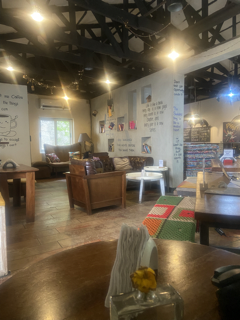Before beginning my research project, imposter syndrome in the classroom resonated deeply, as I have personally experienced it. When I first met with my supervisor and discovered that I could specifically focus on accents and how they affect imposter syndrome in the classroom, I felt even more motivated to immerse myself in this research process.
In addition to analysing previously conducted interviews on imposter syndrome, I carried out further interviews specifically focused on the accents of Nigerian international students and how these accents impact their experiences with imposter syndrome in the classroom. This broadened my understanding, revealing that while the experiences differ, there is a shared struggle among individuals facing this issue.
One of the most significant insights I gained was that imposter syndrome is not a permanent condition it can be addressed and overcome. On the other hand, the most challenging aspect for me was the transcription process. However, through this challenge, I discovered my passion for conducting research, continually learning and applying new knowledge.
This journey has taught me valuable lessons in prioritising, re-strategising, and managing my time effectively all of which are essential qualities of a dedicated learner, leader, and responsible individual. With just two weeks left in my project, I find myself working from a café back home in Nigeria, where I can focus and complete my work. I've included a photo of the café below.

As I approach the final stages of my research, I look forward to sharing my findings and the knowledge I've gained throughout this process.




Please sign in
If you are a registered user on Laidlaw Scholars Network, please sign in
What an interesting topic! I love that you mentioned imposter syndrome is not permanent and it is something we can all work to overcome. I can't wait to see the final output of your research project!
Thankyou so much!!!